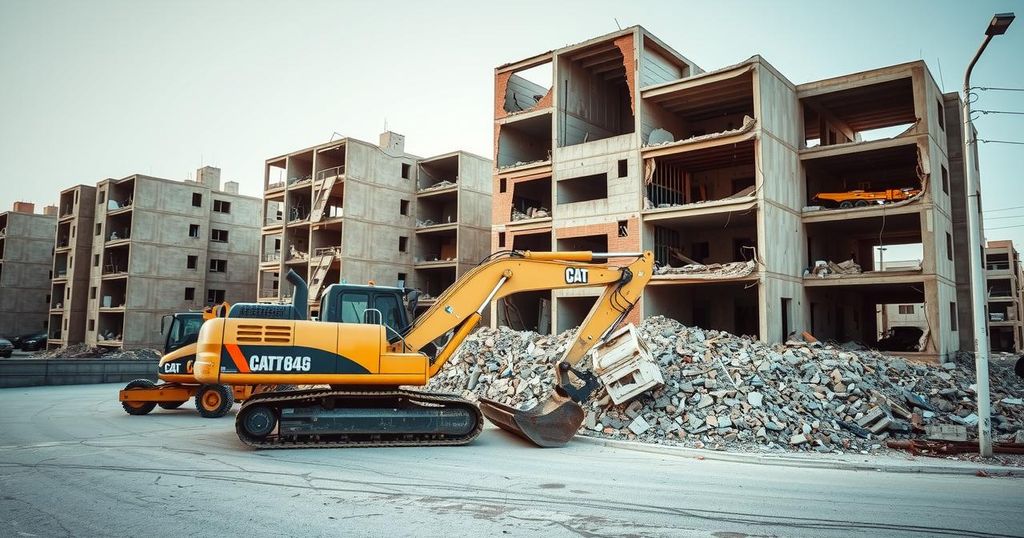Israeli Military Exploits Ceasefire to Expand Operations in Southern Lebanon

The Israeli military has intensified its operations in southern Lebanon, using the ceasefire to expand demolition efforts in various towns, including Bani Hayyan. This comes amid tensions with Hezbollah and a history of ceasefire violations. The Lebanese army has begun dismantling Hezbollah infrastructure while Israeli forces face accusations of aggression, raising concerns about the stability in the region.
On December 18, the Israeli military resumed its demolition campaign in southern Lebanon, exploiting the ceasefire to expand its operations into areas previously inaccessible during its conflict with Hezbollah. Reports indicate that Israeli forces entered the town of Bani Hayyan, demolishing structures including portions of a mosque. Social media evidence depicts military equipment engaged in these destructive actions, illustrating a continuation of hostilities in spite of the ceasefire.
Earlier that week, Israeli troops carried out demolitions in several communities within the Tyre district. Israeli military forces are obliged to withdraw from Lebanon within 60 days from the ceasefire declaration made on November 27. In response, the Lebanese army has begun dismantling Hezbollah infrastructure as mandated by the United Nations Resolution 1701. However, Israeli violations of the ceasefire have reportedly occurred over a hundred times, with deadly airstrikes and troop advances inflicting significant destruction in southern Lebanon.
An incident on December 17 highlighted ongoing tension, as an Israeli drone strike injured three individuals in Majdal Zoun. Furthermore, unauthorized incursions by Israeli settler groups into southern Lebanon have raised alarms, prompting the Israeli military to launch investigations into these breaches of security that jeopardize both safety and operational integrity in the area.
In an assessment of the situation, the Israeli military confirmed the discovery and demolition of a Hezbollah tunnel used as a command center for rocket attacks—illustrating the complexities and interwoven security challenges faced by both sides. On December 18, a meeting was conducted involving U.S. and French representatives alongside the UNIFIL, Israeli, and Lebanese military officials to address ceasefire violations. In light of these developments, Lebanon’s caretaker Prime Minister Najib Mikati expressed optimism regarding the cessation of further Israeli violations, affirming, “We have turned the page on the war. There are some Israeli violations, but we will soon stop them.”
The article discusses the recent activities of the Israeli military in southern Lebanon following a ceasefire declared on November 27, 2023, amidst ongoing tensions with Hezbollah. The ceasefire was intended to halt hostilities between Israeli forces and the Lebanese militant group, yet reports indicate that Israel has continued its demolition campaign and operations in southern Lebanese territories. The context behind these actions stems from a history of conflict that has persisted between Israel and Hezbollah, exacerbated by previous military operations and ceasefire agreements. Additionally, the involvement of settler groups and subsequent Israeli military inquiries into security breaches reveal the complexities of territorial disputes and security measures in the region.
In conclusion, the actions taken by the Israeli military in southern Lebanon following the ceasefire have raised significant concerns about the potential violation of agreements and the resurgence of hostilities. With reports of extensive demolitions, unauthorized incursions by settler groups, and continuing military operations, the situation remains precarious, demanding careful monitoring and international oversight. The Lebanese government’s response and ongoing discussions among military representatives highlight the need for an enduring resolution to safeguard peace and stability in the region.
Original Source: thecradle.co








